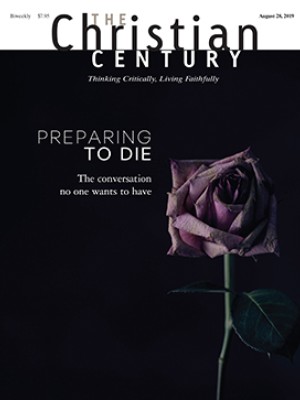In praise of Elie Wiesel
Two tributes that offer behind-the-scenes glimpses of the beloved teacher
Holocaust survivor and Nobel Peace Prize winner Elie Wiesel died in 2016 at the age of 87. He is most widely known for his haunting memoir Night, which was featured by Oprah Winfrey when she was at the height of her visibility and which is still assigned in many high schools. Quite apart from Oprah and high school reading lists, Wiesel’s significance is hard to overstate. At least two generations of Jewish and Christian scholars have been deeply affected by his moral vision. I count myself among that number.
Much has been written by and about Wiesel. These two books are among the first offerings to emerge since his death. They are, in fact, offerings—tributes, encomiums, sacred gifts of gratitude and praise from people who knew and worked with Wiesel. Each book offers behind-the-scenes glimpses of Wiesel as a teacher, mentor, and friend. Yet each book inevitably works its way around to Wiesel’s extraordinarily rich thinking. Much of this thinking is presented through records of priceless classroom moments and quiet one-on-one conversations that would otherwise be known only to those who were physically present.
Read our latest issue or browse back issues.
Alan Berger, one of Wiesel’s closest colleagues in Jewish and Holocaust studies, has compiled and edited a brief collection of essays. Most of the authors are well-known older figures who have undertaken Holocaust studies in an explicitly interfaith way. The papers were first presented at a conference at Florida Atlanta University involving the scholars who gather each year to judge the Elie Wiesel Foundation for Humanity’s college student essay contest.
Like most conference volumes, the essays vary in interest and depth. In general, the early essays are quite brief and describe Wiesel as teacher, friend, and essay contest leader, while the latter essays engage and develop aspects of his thought in festschrift style. There are treasures here, unevenly scattered in the book. Alan Rosen offers perhaps the most original essay, reflecting on the use of fire imagery in Wiesel’s writing. David Patterson’s essay on what might be described as Wiesel’s theology of writing is also superb.
Ariel Burger’s Witness has already received wide distribution and attention. I have never read a book quite like it. At one level, it is a tribute to Wiesel, especially as teacher. Burger, now a rabbi, writer, artist, and activist, served for many years as a teaching assistant to Wiesel at Boston University. The book brims with stories from Wiesel’s BU classroom.
But the book is also a highly personal account of Burger’s relationship with Wiesel over decades, which evolved into a profound bond between a mentor and a rabbi. Burger tells us enough about his own journey to help us understand the wisdom that Wiesel was able to offer him at pivotal stages of his life, and he reports in detail on specific conversations the two had over many years. The book is stereoscopic: the life of Burger and the life of Wiesel are intertwined in a leisurely, meditative way.
What lingers for me from these diverse voices is an enriched picture of Wiesel himself. These books were written just in time, before Wiesel’s memory is sanctified, universalized, or forgotten. Here is what they’ve helped me to see.
Wiesel was deeply and faithfully Jewish, not just in practice but in his extraordinary grasp of the Jewish intellectual and religious tradition. He carried forward the European Jewish biblical, rabbinic, and Hasidic traditions—the religious culture which the Nazis tried so hard to annihilate along with the Jewish people themselves.
Wiesel was an embodiment of liberal and humane learning, able to teach the ancient and current literary canon and to draw students into searching reflection on the questions these works raise. He related deeply to scholars and schools of various types around the country, giving his time generously to visiting lectures and even phone-in classroom conversations.
Wiesel’s primary identity was as a teacher. He was magically gifted in classroom teaching, and he involved students deeply in the process of learning. Reading about Wiesel as professor will instruct and inspire all professors.
Wiesel chose to offer at least one brief private conversation to any student who wanted to meet with him, and he seemed entirely focused on that sacred, unrepeatable human being during those 20 minutes. How many other Nobel Peace Prize winners make themselves this available to ordinary people? How many professors do?
Wiesel had an extraordinarily fertile imagination and supple mind. He was a thinker not just of convictions but of questions and paradoxes. His characteristic “and yet” always meant that a good conversation about an important subject is never resolved but awaits the next set of questions.
So perhaps it is appropriate that after reading these two books I am left with both more information and more questions: How did Elie Wiesel manage to protect a space for private life with such a load of people, correspondence, classes, and events to manage? What kind of staff did he build to enable him to manage his responsibilities? When did he find time to read so deeply and widely amid this kind of schedule? Who took care of him while he was taking care of others? How did he deal with his staggering grief and traumas?
We need soon a full-fledged scholarly biography of Wiesel, one based on full access to his correspondence, unpublished papers, friends, and family. For now, these two books help us better appreciate one of the most extraordinary human beings of our time.








